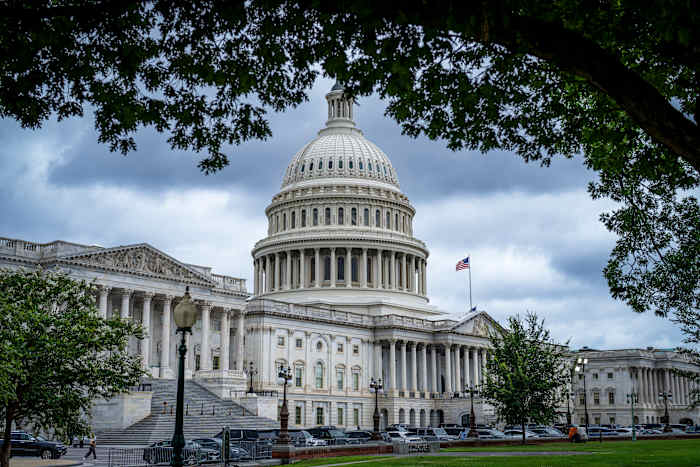The Senate has narrowly confirmed Joe Kent, President Donald Trump’s controversial choice to lead the National Counterterrorism Center, a decision that has ignited significant debate over national security leadership. This pivotal vote comes as Republicans largely overlooked Kent’s documented connections to right-wing extremists and his past endorsement of conspiracy theories regarding the January 6th events at the U.S. Capitol.
Kent secured his confirmation with a 52-44 vote, notable for Sen. Thom Tillis of North Carolina being the sole Republican to vote against the appointment. Having already served under the Director of National Intelligence, Kent now assumes a critical role, overseeing an agency specifically tasked with the meticulous analysis and detection of terrorist threats both domestically and internationally. His appointment marks a significant moment in the ongoing efforts to shape the intelligence community’s direction.
A key aspect of Kent’s proposed agenda within the National Counterterrorism Center involves redirecting substantial agency resources towards combating Latin American gangs and other organized criminal groups, particularly those linked to migration patterns. This focus aligns with broader political objectives, as Kent becomes the latest in a series of Trump loyalists to ascend to senior national security positions, reflecting a persistent drive to implement specific policy goals.
During his confirmation hearing before the Senate Intelligence Committee in April, Kent articulated President Trump’s commitment to “identifying these cartels and these violent gang members and making sure that we locate them and that we get them out of our country.” This statement underscored his alignment with the previous administration’s priorities on border security and law enforcement, signaling a potential shift in the agency’s traditional counterterrorism scope.
Kent’s professional background is extensive, encompassing two congressional campaigns in Washington state, an impressive military career with eleven deployments as a Green Beret, and subsequent work with the CIA. His personal history is also marked by tragedy; his first wife, a Navy cryptologist, tragically died in 2019 in Syria due to a suicide bomber while engaged in operations against the Islamic State group, adding a poignant dimension to his public service.
Despite his experience, Democratic senators mounted strong opposition to Kent’s confirmation, primarily citing his past affiliations with far-right figures and his promotion of conspiracy theories. Concerns were particularly heightened by revelations that during his 2022 congressional campaign, Kent reportedly compensated Graham Jorgensen, a member of the far-right military group the Proud Boys, for consulting services. He also maintained close working relationships with Joey Gibson, founder of the Christian nationalist group Patriot Prayer, and attracted support from various other extreme right-wing factions.
Further scrutiny arose during his Senate hearing when Kent conspicuously declined to disavow the January 6, 2021, attack on the Capitol, or to distance himself from unsupported claims regarding President Joe Biden’s legitimacy. Democrats additionally probed his involvement in a secretive task force reportedly utilized by Trump’s national security team to overturn election results, deepening their apprehensions about his judgment and commitment to non-partisanship.
Grave concerns were also voiced over a recent incident where Kent, then serving as chief of staff to a prominent figure, allegedly instructed an intelligence analyst to alter an assessment concerning the relationship between the Venezuelan government and a transnational gang. These revisions ostensibly aimed to support the former president’s contentions that members of the gang could be subject to removal under the Alien Enemies Act, a wartime provision, raising questions about political interference in intelligence assessments.
Sen. Mark Warner of Virginia, the leading Democrat on the Senate Intelligence Committee, emphasized the critical importance of a counterterrorism director being “trusted to tell the truth and to uphold the core principles of the intelligence community: Objectivity, nonpartisanship and fidelity to fact.” His statement encapsulates the foundational concerns that underpinned the fierce opposition to Kent’s appointment, highlighting the ongoing tension surrounding appointments within sensitive intelligence roles.






Leave a Reply